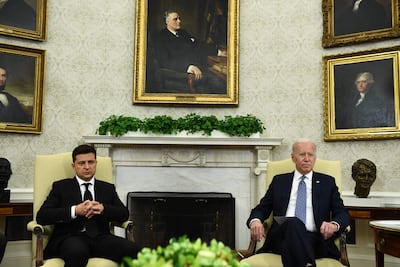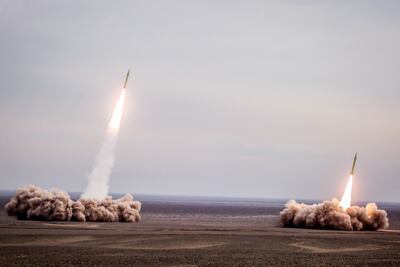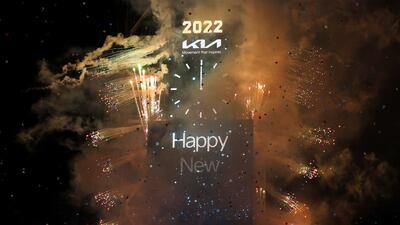The new year was always going to begin under the shadow of the pandemic. But with the Omicron variant spreading far and wide at a rapid pace, it won't be easy to tame the virus in the next 12 months. Covid-19 has already left behind a trail of death, pain and shattered dreams for nearly two years.
Of course, the coronavirus is not the only source of our problems today. The year 2021 has left behind a laundry list of crises – economic, political and geopolitical – that we need to tackle on an urgent basis in 2022.
Apart from the pandemic, the biggest crises afflicting the world are geopolitical in nature.
Tensions continue in Eastern Europe, where Nato and Russia are jockeying for influence. Ukraine's interest in joining Nato and the western security alliance’s gradual expansion into what Russia believes to be its sphere of influence has greatly worried Moscow. Talks scheduled for January 10 in Geneva between Russia and Nato member states could well avert an all-out conflict, but doubts remain over whether Nato will meet Russian President Vladimir Putin’s demand for something that resembles a treaty with written guarantees.
Balance of power requires strong leadership on all sides, something that is currently lacking in the West.
This is particularly a problem in Europe after Angela Merkel's resignation as the German chancellor late last year. French President Emmanuel Macron is considered to be Mrs Merkel's natural successor as Europe's de-facto leader, but he is up for re-election this year. Meanwhile, Olaf Scholz, the new German chancellor, is currently focused on domestic challenges.
The US is also facing a crisis of leadership under Joe Biden's presidency. The world is accustomed to seeing proactive and decisive American leadership but the Biden administration has come up short in this regard. It could be further hackneyed if the opposition Republican Party secures a majority of seats in the US House of Representatives and Senate – as is expected after this year's midterm election.
There will be no crisis of leadership in China, however. The 20th Congress of the ruling Communist Party is expected to re-elect Xi Jinping president this year. One can expect tensions to escalate between the US and China – particularly over the future of Taiwan, which has ties to Washington but is viewed as a renegade province by Beijing.

Apart from the pandemic, the other big crisis that matters to those of us living in the Middle East, but also beyond, is Iran's nuclear weapons programme – and, by extension, its geopolitical competition with Israel.
The on-again, off-again Vienna talks to revive the 2015 nuclear deal between Iran and the permanent members of the UN Security Council, plus Germany, could well lead to a breakthrough but if talks fail, a military confrontation cannot be ruled out between the two regional rivals.
Tehran has sent out multiple messages to Israel within the context of its various weapons development programmes. It has warned that it will accelerate its nuclear programme if talks fail. It has insisted that it is more militarily capable than ever and that its balance of power with Israel has shifted. It has also pledged to counter future covert strikes on its nuclear sites, having alleged Israel's hand in the past. It says it remains committed to Israel's destruction and is even confident that the Biden administration will not intervene militarily if a direct war were to erupt between Iran and Israel.
There are two views on the possible nature of a future conflict between the two countries.

One suggests that cyber warfare will continue unabated, as Israel steps up its alleged intelligence and covert operations, and that Iran will not seek a direct confrontation over concerns that this will leave Hezbollah – the Iranian-backed proxy in Lebanon, which shares a border with Israel – vulnerable.
The other view suggests that Lebanon could indeed be a theatre of war. Tehran is reportedly planning to expand its military support to Hezbollah in the coming days and weeks – especially if the Vienna talks fail.
Given the potential for any of the flashpoints mentioned above to occur, there is no doubt that the new year brings with it more than its fair share of anxiety. But living in fear is no remedy for the challenges we face in 2022, as important as it is to determine exactly what these challenges are.
For those of us who have been fortunate enough to survive the pandemic's onslaught, there are reasons to hope. Just as conflict is always around the corner, so are astounding discoveries, scientific and technological progress and positive social and political change. We have seen this even in the recent past.
At every level, from individual to societal to national to multilateral, we have to remind ourselves that we are partners in shaping our collective future. It is, therefore, our responsibility to ourselves and to future generations to find solutions rather than be pessimistic – particularly when 2022 has only just begun.


